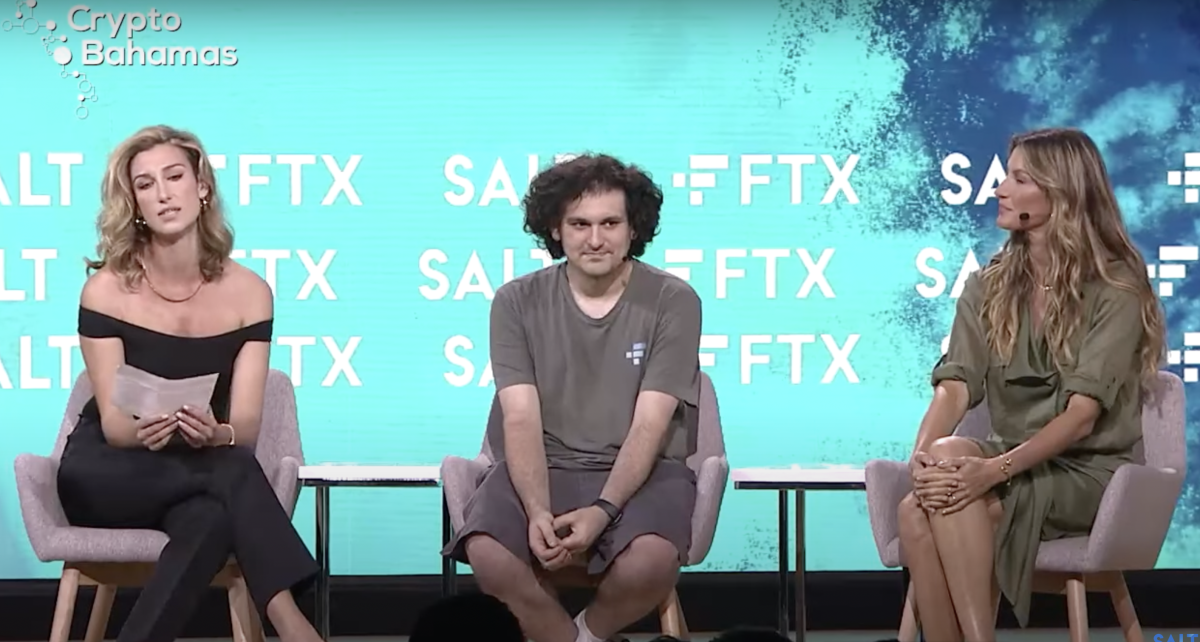New hearing set on whether to put Bankman-Fried in jail pre-trial

Quick Take
- A federal judge will hear additional arguments about whether to revoke Sam Bankman-Fried’s bail after prosecutors accused the failed crypto mogul of witness tampering.
- U.S. Attorney for the Southern District of New York Damian Williams, the top prosecutor on the case, continued this week to push for Bankman-Fried’s jailing until his October trial.

The federal judge overseeing Sam Bankman-Fried’s criminal trial wants to hear additional arguments about possibly revoking the failed crypto mogul’s bail on Aug. 11.
Federal prosecutors want to revoke Bankman-Fried’s bail, meaning he would move from house arrest with his parents in Palo Alto, Calif., to a jail in New York while awaiting the scheduled Oct. 2 beginning of his criminal trial.
Judge Lewis Kaplan of the U.S. District Court for the Southern District of New York also ordered Bankman-Fried to be present for the hearing next Friday.
Prosecutors have accused the former FTX CEO of witness tampering after the New York Times ran a story featuring personal documents of former Alameda Research CEO Caroline Ellison. This week U.S. prosecutors continued to urge a federal judge to end Sam Bankman-Fried’s house arrest and jail the failed crypto mogul until his criminal trial can begin on Oct. 2.
The government has accused Bankman-Fried of illicit tampering with witnesses in his criminal case on multiple occasions, the latest being talking to the Times for their profile of Ellison, who is also his ex-girlfriend. In a letter submitted late Aug. 3 to the court where Bankman-Fried’s trial will take place, U.S. Attorney for the Southern District of New York Damian Williams said that Ellison will be “an important witness” in the trial, and argues that Bankman-Fried is trying to discredit her.
Responding to claims from the FTX owner’s defense lawyers that Ellison was already the subject of media coverage, Williams says that Bankman-Fried helped put her in the center of press attention, as part of his, “sustained effort to focus the media on Ellison’s personal life and private writings.”
Repeated witness tampering allegations
Bankman-Fried’s attorneys argued that a New York Times reporter was already working on the story around Ellison’s writings that kicked off the latest legal fight over whether or not the criminally-indicted former crypto billionaire should remain under house arrest before his October trial.
But Williams replied that Bankman-Fried, “shared materials with the press obviously designed to intimidate, harass, and embarrass someone he knows is slated to testify against him, and to provoke an emotional response in potential jurors and color a potential juror’s view of that witness.”
Following last week’s Times article about Ellison’s writings, prosecutors pressed for an end to Bankman-Fried’s house arrest with his parents. Judge Lewis Kaplan, the U.S. district court judge presiding over the case, issued a temporary gag order on Bankman-Fried and others involved in the case, which the New York Times and other media organizations are now fighting.
'Witness-1'
In his Aug. 3 letter to the court, Williams repeats accusations that Bankman-Fried improperly reached out to FTX US General Counsel Ryne Miller months ago in an attempt to coerce Miller’s testimony to corroborate Bankman-Fried’s own story, through contact using an encrypted messaging app.
In a message entered into the record by Bankman-Fried’s attorneys, the former FTX CEO messaged Miller via multiple mediums apologizing for being on the “wrong foot” with one another and asking to “reconnect and see if there’s a way to have a constructive relationship, use each other as resources when possible, or at least vet things with each other.”
Miller is generally referred to as ‘Witness-1’ throughout Bankman-Fried’s court filing, but identifiable by his email signature in one exchange, in which he directed Bankman-Fried towards the corporate restructuring expert put in charge of FTX, John Ray III, and lawyers tasked with maximizing value from the imploded business empire for creditors.
As a result of the repeated outreach to “vet things with each other”, as well as use of a virtual private network which Bankman-Fried said was necessary to watch American football games that are publicly broadcast over-air for free, Bankman-Fried’s bail terms were tightened earlier this year. His use of electronics must be monitored and limited, and a thus-far non-public log of visitors to the home must be kept, though at least one journalist has asked the court to make the list public.
Push to put SBF in NYC jail
Williams continued to push Kaplan to jail Bankman-Fried and cut him off from press contact prior to trial due to the allegations of witness tampering. But Bankman-Fried’s attorneys, the Times, and famed Harvard Law School Professor Laurence Tribe argued to Kaplan this week that presenting his case in the press was part of his constitutional right to free speech.
In an Aug. 1 filing presenting an affidavit from Tribe, Bankman-Fried’s attorneys wrote that, “criminal defendants have a right to talk to the press about their case to influence their public image and try to protect their reputation, as long as the communications are not calculated to pervert the course of justice.”
The judge, Kaplan, issued a temporary gag order on Bankman-Fried, lawyers, and other people involved in the case until he makes a determination about whether to order Bankman-Fried to jail prior to the trial.
UPDATE: With additional details of arguments around Bankman-Fried's bail and gag order throughout.
Disclaimer: The former CEO and majority shareholder of The Block has disclosed a series of loans from former FTX and Alameda founder Sam Bankman-Fried.
© 2025 The Block. All Rights Reserved. This article is provided for informational purposes only. It is not offered or intended to be used as legal, tax, investment, financial, or other advice.







